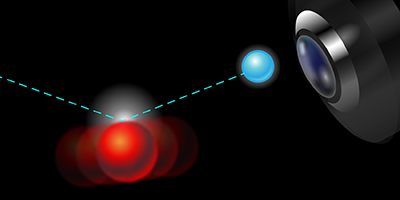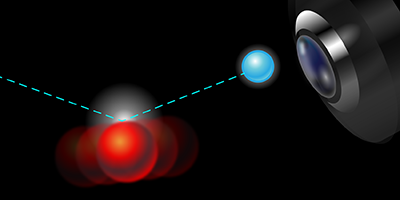Rescuing Heisenberg
The popular conception of the Heisenberg uncertainty principle is that measurement is unavoidably invasive. We disturb an object when we observe it, thus introducing error into subsequent measurements. However, recent experiments (see 6 September 2012 Synopsis) claim to have measurement errors below the Heisenberg limit. To address this apparent contradiction, a paper in Physical Review Letters reports a new formulation of the uncertainty principle in which measurement disturbance depends on the performance of the measuring device, which is quantified as the maximum possible change in the state of the object.
Physicists often characterize the uncertainty principle in terms of how a particle’s state is prepared. For instance, placing a particle in a small box lets us know its position fairly precisely, but it leaves the momentum with a wide range of possible values. Another way of looking at this is through measurement effects. Heisenberg himself gave the example of a microscope that scatters photons from a particle to measure its position. The shorter the photon wavelength, the more precise the position measurement can be, but also the greater the disturbance to the particle’s momentum. However, recent work with so-called “weak” measurements seems to indicate that disturbances can be less than Heisenberg would predict.
Paul Busch of the University of York in the UK and his colleagues believe there is no contradiction here, but only a misunderstanding over how to characterize the effects of measurement. Previously, measurement-induced errors have been calculated on a state-by-state basis, by comparing the state of a system “before” and “after” a measurement. But Busch et al. show that defining measurement error in a state-independent way, through a kind of calibration process of the measuring device, leads to limits in line with the uncertainty principle. – Michael Schirber





